Today, we invite an expert to discuss the constitution that is prone to cancer.
Phlegm-Damp Constitution

Dr. Yang Zhong, Chief Physician
Beijing Traditional Chinese Medicine Hospital, Capital Medical University
What is Phlegm-Damp?
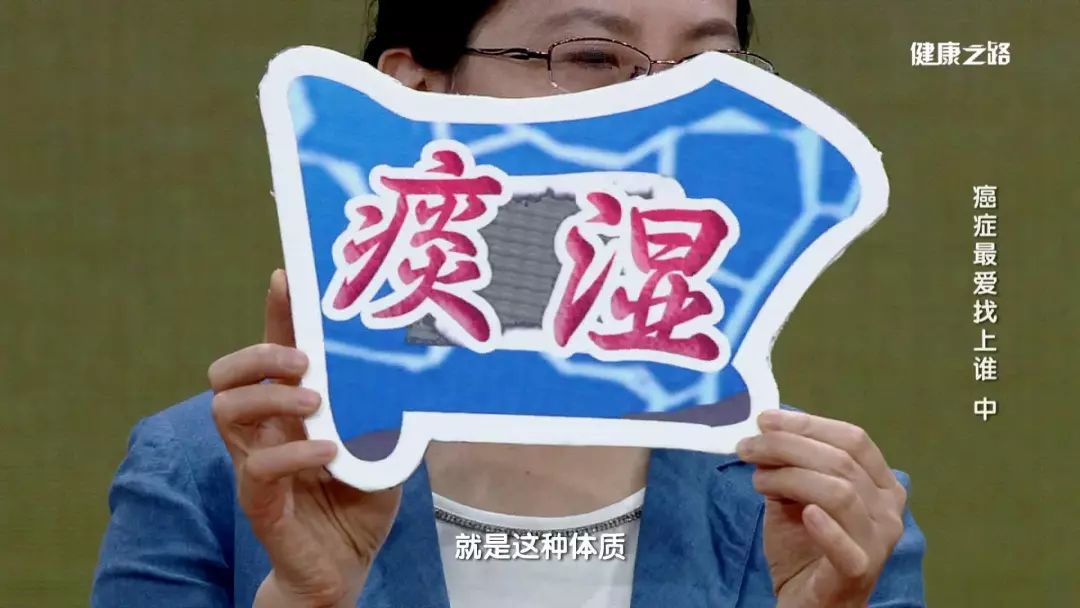
Phlegm-Damp is a concept in Traditional Chinese Medicine (TCM). “Phlegm” can be divided into tangible phlegm and intangible phlegm. Tangible phlegm can be understood as the phlegm produced during coughing, while TCM usually refers to intangible phlegm.
Seventy percent of the human body is composed of water, referred to as jinye (body fluids) in TCM. It transports nutrients to various parts of the body while also carrying waste out of the body.
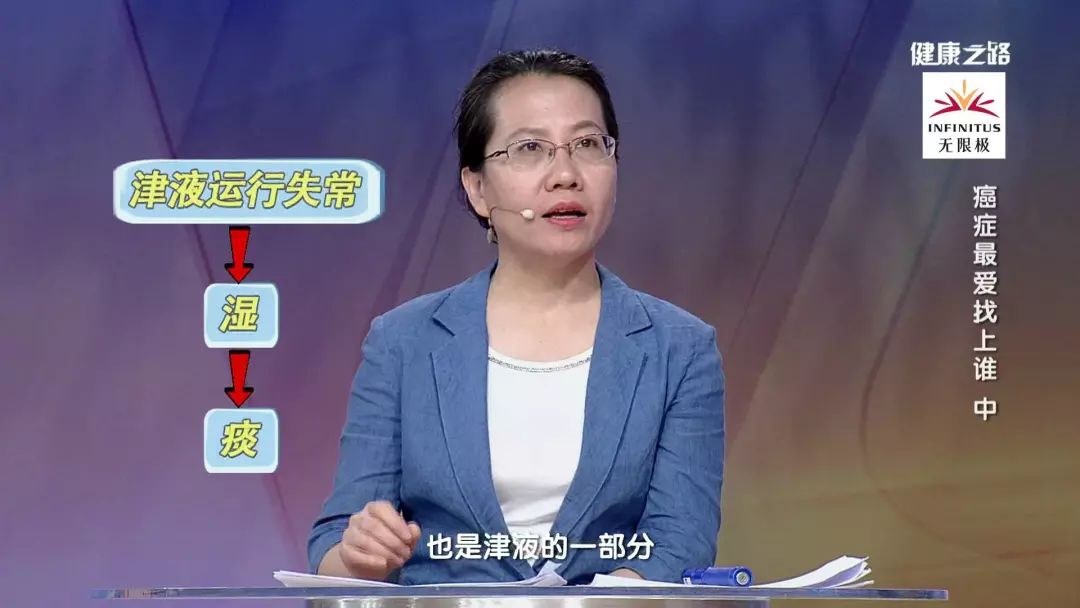
If the circulation of jinye is disrupted, it will first lead to dampness. When dampness cannot be properly transformed, it will condense into phlegm. Therefore, the essence of phlegm-damp is a part of jinye, but it manifests in a pathological state.
Expert Reminder
The characteristics of phlegm-damp: Phlegm-damp is a condition that affects the entire body. It is characterized by heaviness and stickiness, and once formed in the body, it is difficult to eliminate. Prolonged presence in the body may lead to malignant changes, and phlegm-damp is closely related to the occurrence and development of tumors.
Individuals with a phlegm-damp constitution are prone to gastrointestinal tumors, colorectal cancer, lymphoma, and brain tumors.
2. How to Identify Phlegm-Damp?
1) Observe Obesity

Normal individuals do not feel bloated in the abdomen and do not experience significant discomfort.
In individuals with a phlegm-damp constitution, the abdomen appears full and soft, and they feel particularly heavy.
2) Observe Stool
People with a phlegm-damp constitution often have sticky stools.

3) Observe the Tongue
Individuals with a phlegm-damp constitution usually have a thick and greasy tongue coating and may experience a bitter taste in the mouth.
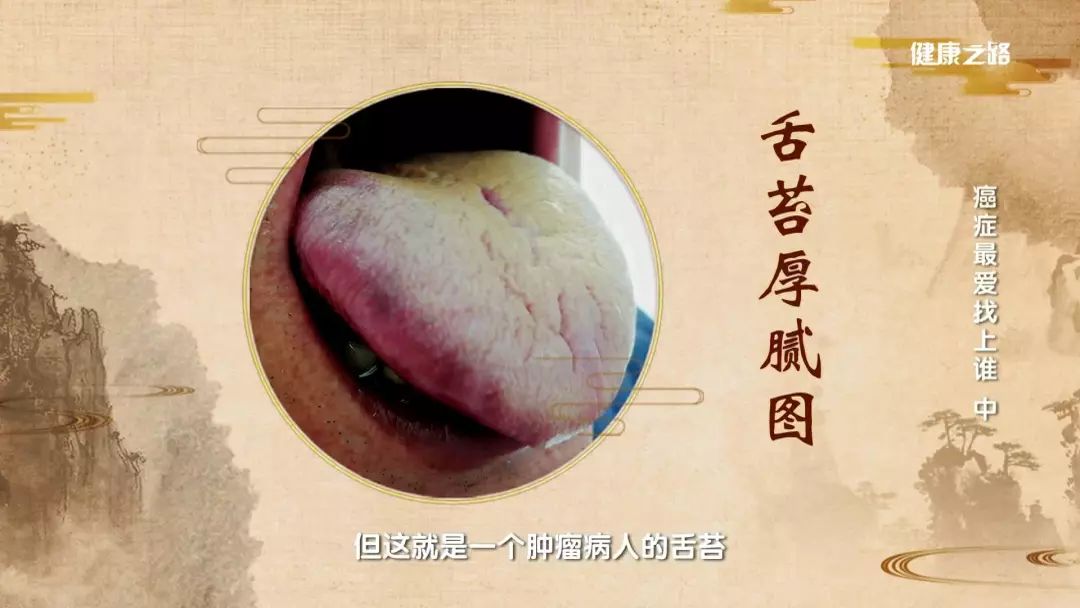
3. Causes of Phlegm-Damp Constitution
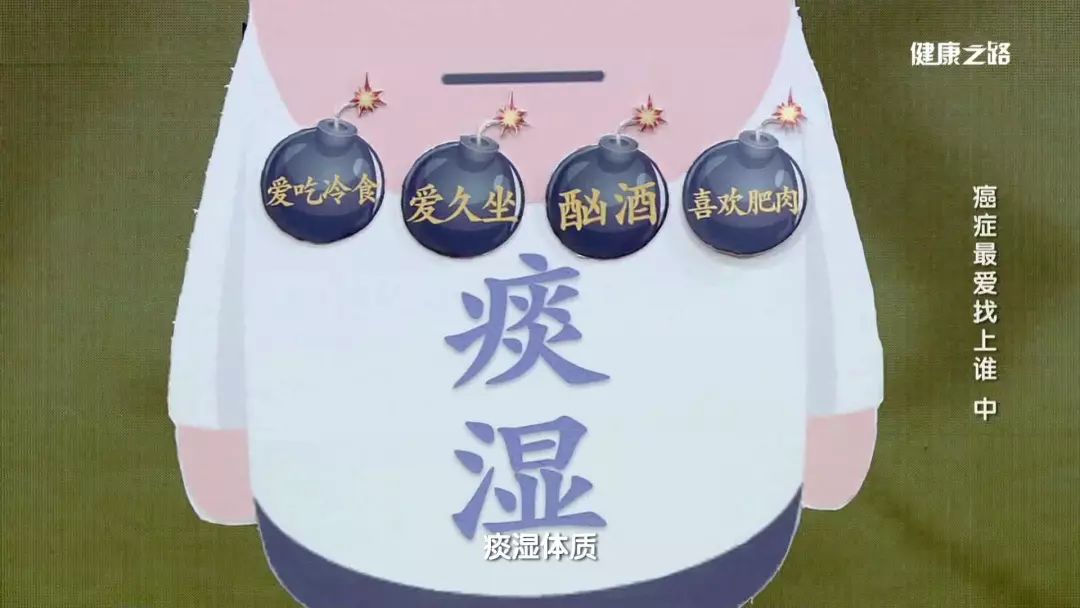
1)Love for Cold Foods: Long-term consumption of cold drinks harms the spleen and stomach, primarily damaging the spleen yang. A weakened spleen function leads to disrupted circulation of jinye, resulting in phlegm-damp;
2)Prolonged Sitting: Movement promotes yang. Normal circulation of qi and blood requires movement; prolonged sitting harms spleen yang, causing phlegm-damp;
3)Excessive Alcohol Consumption: Alcohol is considered a rich flavor in medicine, and rich and fatty flavors are most harmful to spleen yang. Long-term excessive drinking weakens spleen yang, disrupts jinye, and leads to phlegm-damp;
4)Frequent Consumption of Fatty Meats: Regular consumption of fatty meats harms spleen yang, leading to the development of a phlegm-damp constitution over time.
4. How to Prevent Phlegm-Damp?
1) Ensure Adequate Sleep

2) Maintain Regular Exercise

3) Pay Attention to Diet
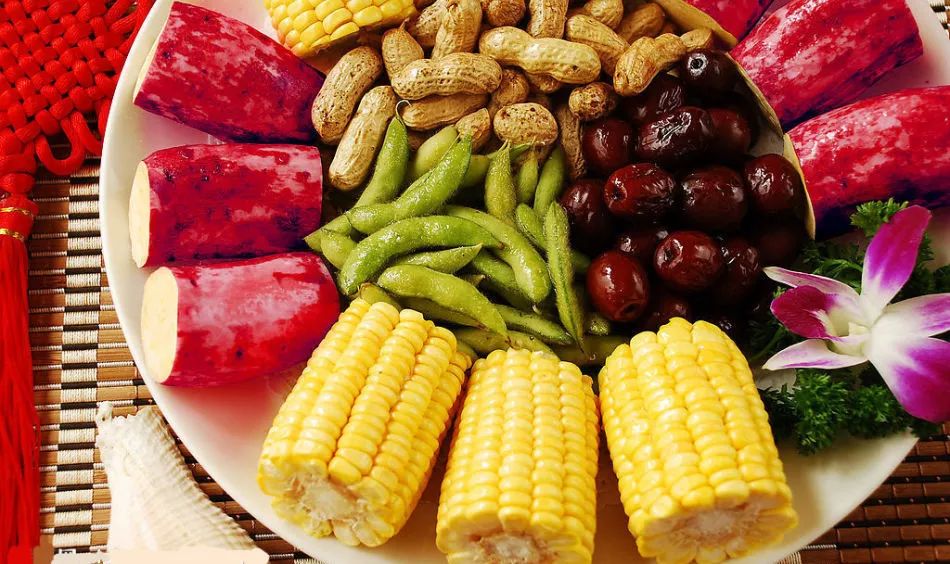
4) Control Emotions

5) Use Herbal Teas to Transform Phlegm and Eliminate Dampness
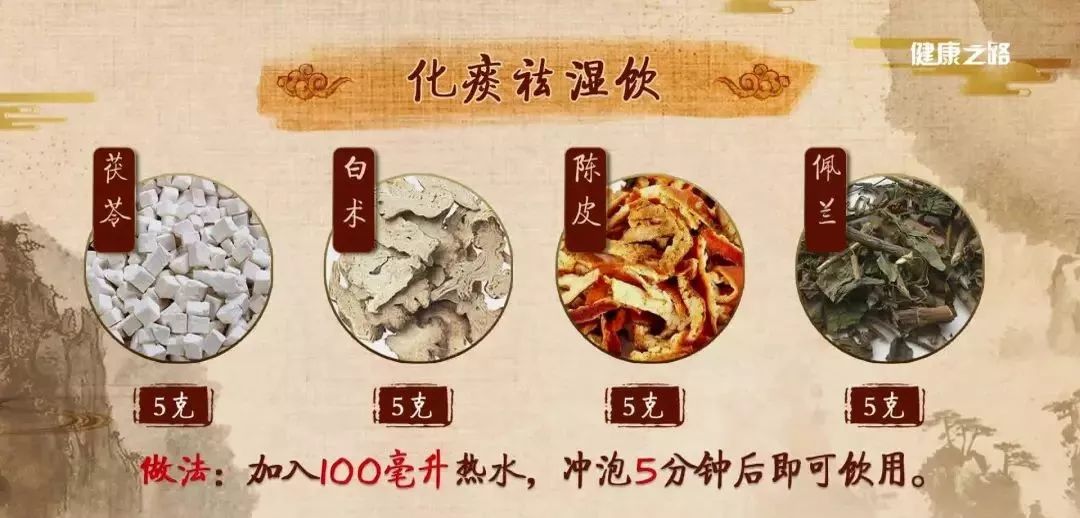
The root cause of phlegm-damp is spleen deficiency. Fu Ling (Poria), Bai Zhu (White Atractylodes) strengthen the spleen, while Chen Pi (Dried Tangerine Peel) and Pei Lan (Eupatorium) eliminate dampness. If you have symptoms of phlegm-damp such as obesity, thick and greasy tongue coating, and sticky stools, you can use this simple formula for self-regulation.
More News
A wheelchair cannot stop his addiction to marathons! This strong man wants to run a “Grand Slam”
An elderly man saves a woman from drowning while holding a cigarette; the cigarette remains lit! Netizens: The woman is still holding a fan
A gas cylinder explosion shatters an entire floor of glass, and instead of firefighters, he rushes into the fire three times
Source:CCTV Health Road
Producer: Li Daixiang
Editors: Guan Kailiang, Xu Xiangda
Intern: Guo Xinyi


